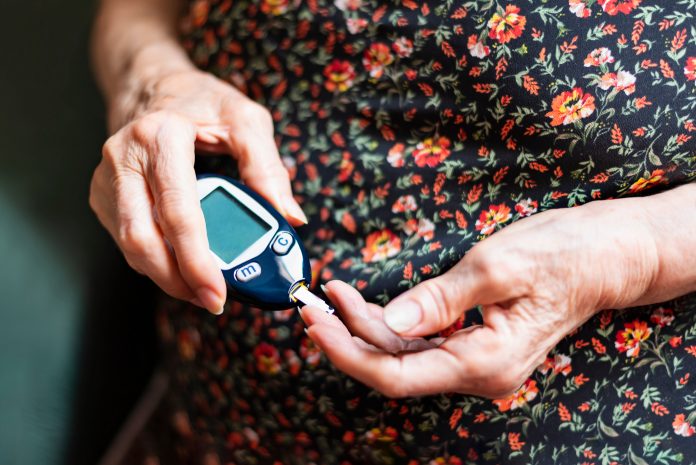
It’s long been known that cancer patients have excess sugar in their urine, now new research affirms that insulin resistance, a distinctive feature in diabetics, is common in cancer patients. Since insulin resistance can lead to tumor growth, this finding suggests further research on whether treating this condition for people with cancer is warranted.
This work was led by University of Copenhagen researchers. It was published in Acta Oncologica. The lead author is Joan M. Màrmol.
The researchers conducted a meta-analysis of 15 studies of insulin sensitivity and cancer. This included 187 patients suffering from different types of cancer, including lung and colon cancer, and 154 control subjects.
They found that “patients with various cancers were markedly insulin-resistant,” as they wrote in their report.
That there was excess sugar in cancer patients’ urine was already well known. “This was one of the first things we learned about cancer patients,” says senior author and associate professor Lykke Sylow of the University of Copenhagen.
But where previous studies have examined the connection between cancer and insulin, the new study, the researchers say, is the first to take a wider look, using meta-analyses.
“In cancer patients, the cells do not respond well to the hormone insulin. It therefore takes more insulin to create the same effect in cancer patients. If you suffer from insulin resistance, your body has to produce more insulin than usual to be able to regulate the blood sugar,” says Sylow.
Symptoms of type 2 diabetes such as fatigue and increased thirst and urination develop gradually and can therefore be hard to spot. And in cancer patients, insulin resistance can be even harder to identify as they already experience some of these symptoms, including fatigue.
Aside from the noticeable effects of insulin resistance, the condition can also cause cancer cells to multiply.
“We know from cell studies, animal studies, and some human studies that insulin is a growth hormone, and that it has the same effect on cancer cells. That is, a high level of insulin can make cancer cells grow faster,” says Màrmol. “Of course, this can be a huge problem for cancer patients.”
Furthermore, insulin resistance can influence the build-up of proteins in the muscles. If the body fails to respond to insulin, it losses muscle mass and strength—a huge problem for cancer patients.
Sylow hopes oncologists will begin to check cancer patients’ blood sugar level—even when it appears to be normal, because insulin resistance can be hard to spot as the body will simply compensate by producing more insulin.
“And if they do find that the patient suffers from insulin resistance, they need to start treating it. We are able to treat insulin resistance because we have in-depth knowledge of the condition—we are just used to associating it with type 2 diabetes.”
This lead, the researchers say, suggests new avenues of research.
“The next step is trying to determine who develops insulin resistance. Which cancer patients are at risk here? Do they have a particular type of cancer or specific risk factors? Or is it perhaps connected with the treatment?” Sylow says and adds: “And once we have identified those at high risk of developing the condition, I hope to see more long-term studies of insulin resistance treatment and whether it has a positive effect on the patients.”













